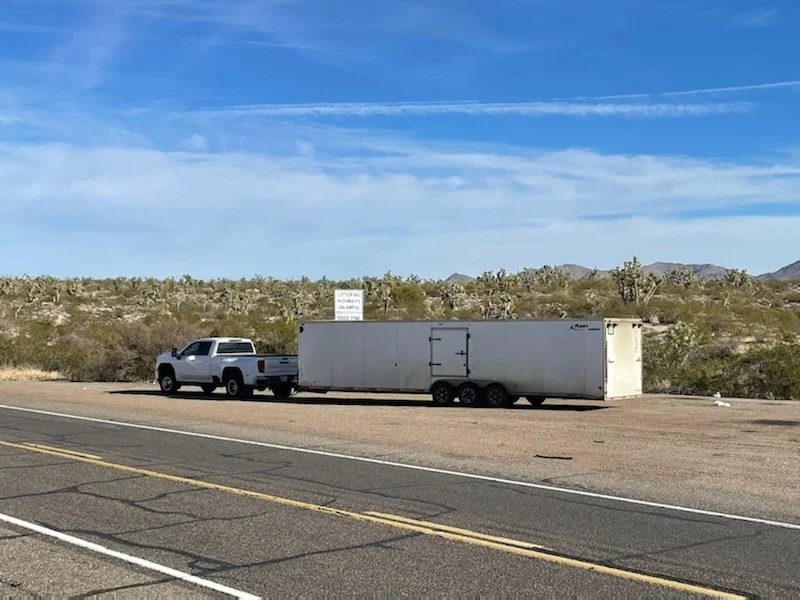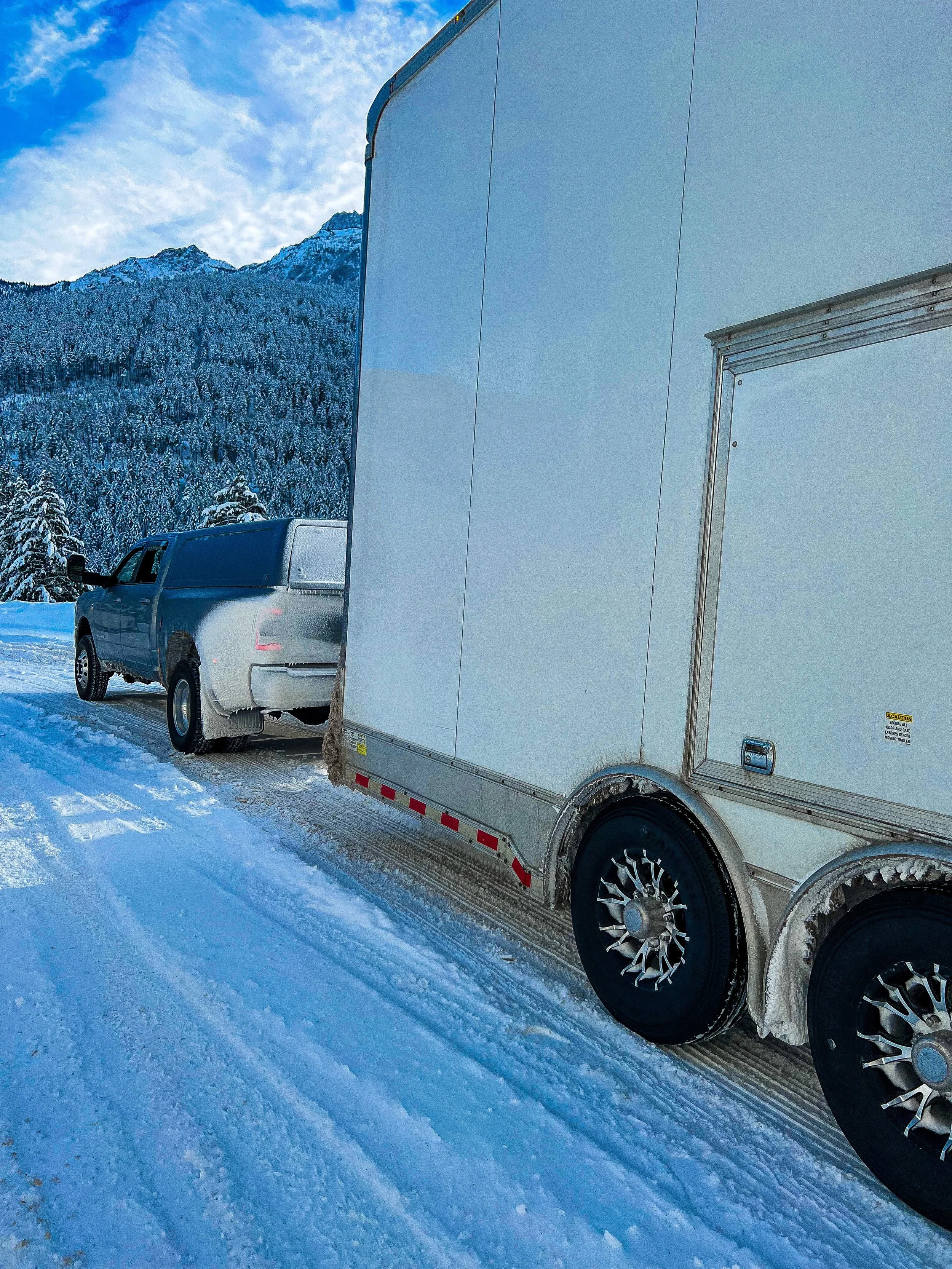How to Navigate the Coquihalla Summit, Rogers Pass, Crowsnest Pass, Kicking Horse Pass and Other Mountain Highways in the Winter
Navigating across Canada and the western United States can be quite a challenging task during the winter. Western Canada is well known for its high mountain passes that are tough on vehicles in all seasons but winter driving presents additional challenges. Some of these highways include the Coquihalla Summit, Rogers Pass, Crowsnest Pass, Kicking Horse Pass and the infamous Duffy Lake road. But the trouble here is that in order to travel almost any distance in British Columbia, you’ve got to take at least one of these roads. Most people postpone their travel until road conditions are more favorable, and that is certainly the way to go, however it is not always possible. Here are a few tips on navigating winter highways from our world class drivers:
Prepare for the road you're driving, not just for your destination.
As you set out on one of these British Columbia mountain passes you might be tempted to pack only for your destination and the trip you have planned. I totally understand! It’s exciting to escape the great Canadian winter for a warm beach, or visit friends you haven’t seen in a while. One of the most important things you can do is pack for the road you are traveling, or at least have a set of supplies that will help you get through in the event you have to shelter in place. Can you just imagine if you were stuck on Duffy Lake Road and all you had in your suitcase was tommy bahamas and tropical printed golf shirts? What a nightmare that would be!
Now before you think we’re being overly dramatic…this kind of thing happens all the time. There are often road closures or swift changes in highway conditions that require drivers to shelter in place. Take for example the Coquihalla (Highway number 5 in BC) during the recent flooding. There were many people who had to be airlifted to a secure location that were stuck on the stretch of the highway between Hope and Merritt.
Taking some time to gather a few specific supplies will greatly increase your comfort during these kinds of incidents and boost your chances of survival. Make sure your supplies are easily accessible. If the items you need are stuck in your truck bed and you can’t get there for whatever reason, they won’t be much good to you, will they!?
These items include a sleeping bag and blankets, first aid kit, a candle and lighter/ flashlight, snacks and water, a small hatchet, toilet paper & wipes, gloves, toque, winter boots, snow pants and winter jackets.
This is a great resource for how to shelter in place can be found here.
Check over your vehicle.
The last thing you want to experience while you’re on the road is car trouble. There are so many things that are preventable with very little effort and will save you a world of headaches not to mention a giant tow bill. Recently while on a family trip from the Interior of BC to the Edmonton area to visit family our truck sprang a coolant leak resulting in a very stressful and stinky last leg of the journey. It’s fine, my husband is a mechanic, we survived and were thankfully able to fix it on our trip, but it wasn’t pleasant! Learn from our mistakes, if you feel like something might be awry, save your marriage and have it checked out and deal with it before you go.
Here is a brief list of things we think you should check before you hit the road:
Fill your gas tank
Check your tires
Check fluid levels in your vehicle
If you are not mechanically inclined have your vehicle checked over by a trusted professional
Check the weather and road reports for your route.
When you plan ahead in terms of your route and check road conditions before you leave for your trip you will have less surprises and in this case, it’s a good thing. Over the past few months there have been so many strange weather patterns that have been creating abnormal closures for most of BC’s highways. Layer that on top of the normal winter weather routine and we have an ever changing highway network. Stay up to date and with these valuable resources for driving any time of the year.
Western Canada & USA Highway Updates by Region
(On most of the USA resources you can actually click to select the notifications you would like to see displayed on the map)
Don’t over do it!
This is one thing we are very serious about, with the nature of the cargo we carry, we understand the implications of driving when you're tired and do our very best to avoid it. The best thing you can do for your safety is to drive when you’re feeling refreshed and to not push your limits. We would much rather plan extra margin in our timeline and arrive safely, and we know you would too! If you're planning an extended trip, build sightseeing stops and overnight stays into your schedule to get out and stretch your legs and get the rest that you need. Some of our most beautiful photos of the BC mountains come from these little pit stops!
If you want to see if you’re too tired to hit the road, take this test! It’s actually quite fun!
Be in touch with your people on the ground.
Remember the buddy systems our mothers used to teach us about…well this is the adult equivalent. Be in touch with your people to let them know when you’re leaving and your expected arrival time. This is not just for common courtesy sake, but also for your safety in case something goes wrong. Share your planned route and timeline with them. Simple communication like this is so very important in the case of an emergency.
Here is a tutorial on how to share your location you can familiarize yourself so you can use this safety feature in the event you need it.











